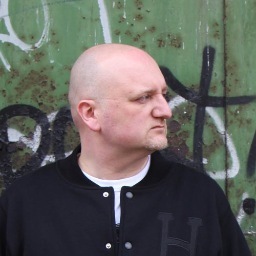Concatenation, An Anglophone Non-Anglocentric SF Site : Summer SF2 Concatenation

An Anglophone Non-Anglocentric SF Site ?
Really ? Is it possible or is just science fiction ?
Reading any anglophone newspaper, magazine or site, one has the impression that the anglos are living in a parallel universe, on a 100% anglo-saxon planet (in a solipsistic and autistic, autarchic and infused with self-importance and imperial arrogance way), not on Planet Earth were the native anglophones are barely 5% from the total world population of 7,2 billion inhabitants.

Anglocentrism is the practice of viewing the world from English or Anglo-American perspective, with an implied belief, either consciously or subconsciously, in the preeminence of English or Anglo-American culture, centered and focused on the AngloSFere, especially in relation to historical or cultural influence :
“Native speakers of English influenced by the unique prominence of English act differently than members of other cultural groups. They take their own superiority for granted and allow it to unconsciously shape their subjective world views. Native speakers of English are uniquely less-likely to learn other languages, feel the need to integrate with other cultures, or admit to and accommodate the existence of other cultures in their home countries. No need to learn a second language, because “everyone speaks English.” Lack of respect of minority language rights: “Why don’t they just learn English ?”“
“Concatenation” it’s an absolute exception, a British pro-Europeanist SF site is just a miracle (in favour of European co-operation and cultural interchange) in such a provincial and closed and nombrilist society as the UK’s one (a 3% country : ” When it comes to international literature, English readers are the worst-served in the Western world. Only 3% of the books published annually in Britain are translated from another language; fiction’s slice is less than 1%. This contrasts sharply with continental Europe: in France, 14% of books sold in 2008 were translations; in Germany, the figure was 8%, according to Literature Across Frontiers, a translation advocacy network. Yet the bias for English literature appears to be universal: two in three European translations are from English, and about 40% of all novels published in France and especially in smaller European countries, the number of translations from English can reach an incredible 80% of all translations.” )

Indeed, an united and independent Europe is increasingly necessary, while a politically divided one would bring disadvantages in many areas, including the economic, cultural, political, social, scientific, diplomatic and military arenas. A major argument is the relative small size and importance of the individual European countries with respect to the current and rising powers on the world scale. The individual European countries would then have limited geopolitical influence and would be unable to represent their own interests effectively.

On the other hand, an united Europe, with a population and an economy larger than that of the United States, is a viable partner, or competitor, whose opinion and interests is be taken into account on the world stage.

“The Summer SF2 Concatenation now up with much European news !
With the award season beginning Europe’s first SF awards have been given. Europe also is in a favourable position with a sound 2016 Eurocon being planned and a strong bid for 2017.
Finally, with Europe’s most recent Worldcon just behind us, it is time to consider its successes and whether it could have been even better still!
The Science Fact & Science Fiction Concatenation has been providing news and views since 1987 and is now a seasonal on-line resource with its summer 2015 edition just posted
http://www.concatenation.org/whatsnew.html
This summer edition contains its usual large, seasonal news page concatenation.org/news/news4~15.html that in turn contains much European news including the first of Europe’s SF Awards
of the year including Russia’s Bastkon Awards http://www.concatenation.org/news/news4~15.html#bastkon and MIR Fantastika Awards
http://www.concatenation.org/news/news4~15.html#mirf
(It is thought that these represent the first announcement of these awards by a non-slavic SF website.)
In addition there is news of the Clarke shortlist http://www.concatenation.org/news/news4~15.html#clarkenoms
There is also news of what could be one of the best Eurocons in recent years with Spain in 2016 http://www.concatenation.org/news/news4~15.html#eurocon16
and a rather strong bid by Germany for the Eurocon in 2017 http://www.concatenation.org/news/news4~15.html#eurocon17
With regards to feature articles, there is the latest SF/F Film Box Office Top Ten (12 months to Easter) http://www.concatenation.org/vidrev/film15.html
as well as an article on SF films of the 1950s. http://www.concatenation.org/articles/sffilms2.html
Both have links to film trailers.
Finally, last August Europe saw the latest Worldcon this side of the Atlantic with Loncon 3. It was a highly successful convention, even by Worldcon standards. But could it have been even better?
SF2 Concatenation has an in-depth stand-alone article on Loncon 3 taken with a con-runner perspective. http://www.concatenation.org/conrev/worldcon_2014.html
With science and SF whimsy from Gaia http://www.concatenation.org/science/gaia15.html plus 26 science fiction and fantasy book reviews, not to mention three non-fiction and popular
science book reviews, there should be something for almost every SF fan.
Science Fact & Science Fiction Concatenation





